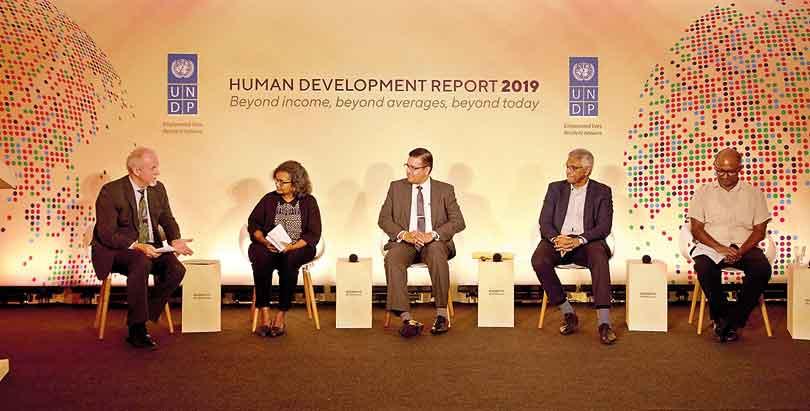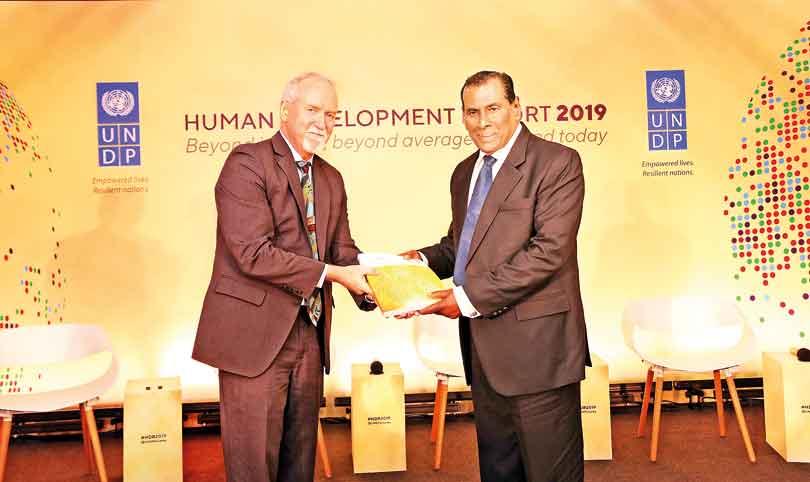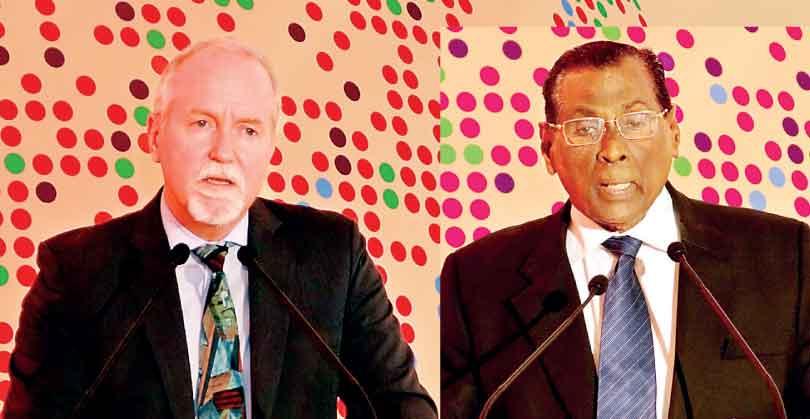12 Dec 2019 - {{hitsCtrl.values.hits}}

The event also featured a panel discussion
 Almost three decades ago the United Nations Development Programme (UNDP) changed the landscape of human development, with the introduction of the Human Development Report and Human Development Index.
Almost three decades ago the United Nations Development Programme (UNDP) changed the landscape of human development, with the introduction of the Human Development Report and Human Development Index.
The report captured global attention as it offered a unique way – beyond income – of tracking the world’s progress. The publication presented the concept of ‘human development’ as advancement towards greater human well-being, with well researched country-level data, making it a tool widely used by governments, researchers as well as non-governmental organisations.
In 2019, the Human Development Report (HDR) and the Human Development Index (HDI), which ranks countries by their level of human development, remain as an important and powerful voice.
The centrepiece of the report, the HDI ranks Sri Lanka at 71 out of 189 countries and territories, placing the island nation in the high human development category in 2019. According to the report, South Asia was the fastest-growing region with 46 per cent growth over the period from 1990 to 2018. South Asia also saw the greatest leap in life expectancy and years of schooling.
The centrepiece of the report, the HDI ranks Sri Lanka at 71 out of 189 countries and territories, placing the island nation in the high human development category in 2019.
At the launch hosted by UNDP Sri Lanka, the report was ceremoniously handed over to Chief Guest, State Minister for Economic and Policy Development John Seneviratne in the presence of UN Sri Lanka Resident Coordinator Ms Hanaa Singer.

Launch of the Human Development Report
Addressing the gathering the State Minister noted that human development is a concept which lies at the core of the new government’s policies.
“The government’s vision is to have a prosperous country with human development indices in par with developed countries. This is the goal that we are working towards. In this context, the launch of this report is timely as it gives us a sense of where Sri Lanka stands and what more we need to do to achieve this vision,” Minister Seneviratne said.
Minister Seneviratne observed that while the country’s records in terms of human development have shown signs of progress, it is important to reflect on new challenges ahead.
The government’s vision is to have a prosperous country with human development indices in par with developed countries. This is the goal that we are working towards.
“Sri Lanka’s HDI value for 2018 is 0.780 - which puts the country in the high human development category—positioning us at 71 out of 189 countries and territories. Whilst I understand that it might be misleading to compare this report with the previous reports, to analyse Sri Lanka’s progression, it is important to note that between 1990 and 2018, Sri Lanka’s HDI value has increased from 0.625 to 0.780, an increase of 24.9 per cent. This shows how the country has been developing. But as a Government, we have the responsibility to bring Sri Lanka to a higher standard,” he said.
Speaking at the launch Ms Hanaa Singer the Resident Coordinator of the United Nations stated that the UN in Sri Lanka was working towards ensuring fair and inclusive development while ensuring that the rights of every citizen were upheld in its journey towards helping Sri Lanka achieve the Sustainable Development Goals.
“As we focus our work on the core mandates of the UN in the areas of development, human rights, peace and security – we look to address inequalities to ensure a sustainable development agenda that leaves no one behind,” she said.
Speakers at the event also highlighted systemic inequalities that are deeply damaging today’s society. The report attempts to identify these inequalities and delves into areas such as wealth, social norms, power imbalances and climate change. It also looks into the creation of policies to reduce inequalities in human development. She said that the main premise of the report was expanding people’s freedoms which were both the main aim and the principal need for sustainable development.
“As the report shows, any comprehensive assessment of inequality must go beyond the dollars and the rupees. There is the economic inequality, of course, but there are also the inequalities of key elements of human development as the report shows us in health, education, dignity and respect of human rights,” Ms Singer said.

“Our collective experience has shown that development is not sustainable if it is not fair and if it is not inclusive,” she said. She noted three key areas which are part of the sustainable development framework, in which the UN has been working in collaboration with the government.
Sri Lanka ranked in the High Human Development Category in the UNDP’s latest Human Development Report
She made special note of climate change as the first area and highlighted the HDR’s observations on the effects of climate change deepening existing social and economic aspects. Inequality and climate crisis are interwoven from missions and impacts to policies and resilience, she observed.
She said her organisation was working on social cohesion programmes under the sustainable development goals. “Worldwide average HDI for women is six per cent lower than for the men due to women’s lower-income and education level in many countries. In Sri Lanka, as presented in the report, gender inequality has a good value ranking 86 out of 162 countries but a lot still needs to be done,” she opined.
The event also featured a panel discussion moderated by Resident Representative of UNDP Sri Lanka Robert Juhkam. The panellists were Dr Chandranath Amarasekera, Director Economic Research, Central Bank of Sri Lanka Prof. Dileni Gunawardena from the University of Peradeniya, Dr Rohan Fernando, Head of Plantations and Business Development at Aitken Spence PLC and Kulasabanathan Romeshun, Senior Research Professional, Centre for Poverty Analysis.
19 Apr 2024 26 minute ago
19 Apr 2024 47 minute ago
19 Apr 2024 2 hours ago
19 Apr 2024 2 hours ago
19 Apr 2024 3 hours ago